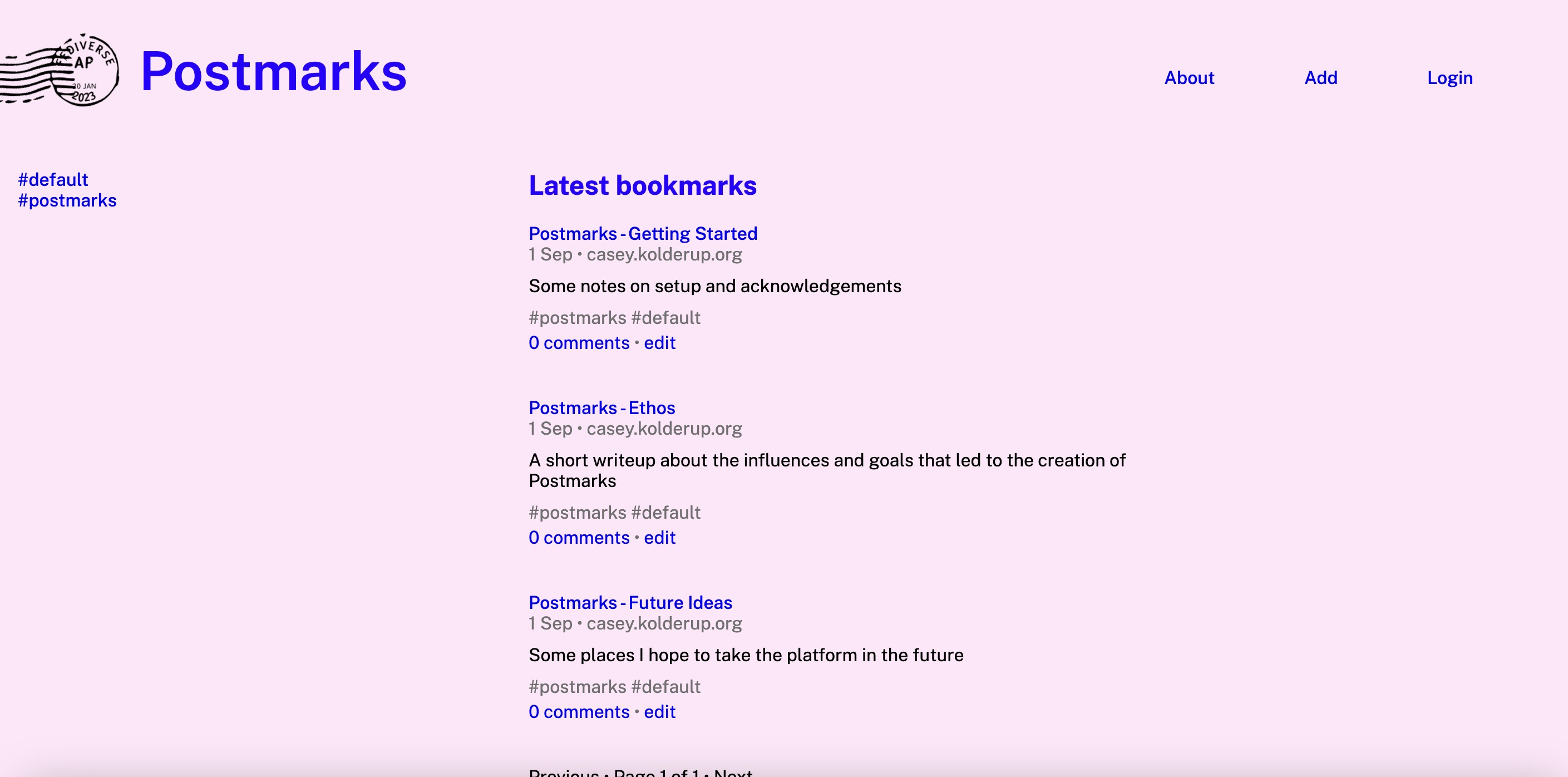The successor to Web 2.0 bookmarking site del.icio.us is here, but this time, it’s built for the open web and the fediverse — the decentralized collection of social networks that includes the Twitter/X competitor Mastodon and others. Portland-area web developer Casey Kolderup has launched Postmarks, a fediverse-enabled social bookmarking service that offers a web interface for saving your favorite links and annotating them, similar to bookmarking sites of years past.
But this time, your links and notes can be shared with your followers both on Postmarks itself, as well as other federated social networks like Mastodon or anything else on the fediverse.
Kolderup was inspired to work on a federated social bookmarking after seeing friends launch their own ActivityPub-powered projects. (ActivityPub is the protocol that powers apps on the fediverse.) For instance, Darius Kazemi forked Mastodon to create Hometown, Mouse Reeve created the social reading and reviewing service Bookwyrm and Ben Brown built a personal social media project Shuttlecraft last winter.
“It seemed neat to me that you could build a social network that uses an open protocol and even has some ability to interact with huge communities of people who are already on software like Mastodon,” says Kolderup. “I had developed bots that worked with APIs on platforms like Twitter, Mastodon and Discord, but making software that sits at the same level as the social network itself seems even more powerful and interesting,” he adds.

Image Credits: Postmarks
With Postmarks, anyone can stand up their own “instance” using its software to create a web interface where you can add your bookmarks and other interesting links, annotate them with a description, tag them to categorize them and create associations between bookmarks.
“It’s built in the spirit of a succession of bookmarking sites that started with Joshua Schachter’s del.icio.us and was carried on for many years by Maciej Cegłowski’s Pinboard,” notes Kolderup. “The result is a no-frills interface that lets you curate and browse a collection you build up over time and lets others peek into your notes and organization.”
The open source software — available on GitHub — is in the early stages for now, so it’s only accessible to people who feel comfortable administrating their own websites. However, the installation is just a three-step process thanks to Glitch’s project remix feature, which lets developers remix work started by others.
Once you set up the ActivityPub portion of the site, the About page contains an @username@domain identifier — similar to an account on Mastodon. Anyone can follow that identity from their own Poshmarks instance, or from Mastodon or other apps on the fediverse. As you create a new bookmark, it will publish that as a “note” to all your followers, making it appear on their own Network page on Postmarks or in their Home feed on Mastodon.
Because it’s self-hosted, Postmarks users can also change the site to meet their needs, whether that’s updating the theme, skinning the whole site, building their own bookmarks database or anything else.
Though the concept of the fediverse has been around for years — Mastodon, for example, was launched in 2016 — the idea recently began picking up steam with more mainstream users in the wake of Elon Musk’s acquisition of Twitter. Frustrated with some of Musk’s changes to the social network, which he’s since renamed X, many former Twitter users found themselves exploring the concept of decentralized social networking by testing out Mastodon — a Twitter-like service, but one where people join individual, interconnected servers that interact with each other and have their own rules. If you don’t like the server you’re on, you can simply port your social identity to another.
Since then, other apps have embraced the fediverse, including Medium, Flipboard and WordPress. More recently, Instagram announced its own Twitter rival Threads would eventually integrate with ActivityPub, offering smaller projects like Postmarks the potential for much broader reach, given that Threads has already grown to 100 million registered users, while Mastodon is currently seeing 1.7 million monthly active users.
Kolderup says he’s not necessarily trying to make Postmarks all that different from the social bookmarking sites that came before it, like del.icio.us or Pinboard, however.
“But on a philosophical level, because it’s self-hosted, that gives you a level of control that we haven’t had before with sites like this,” he says.
